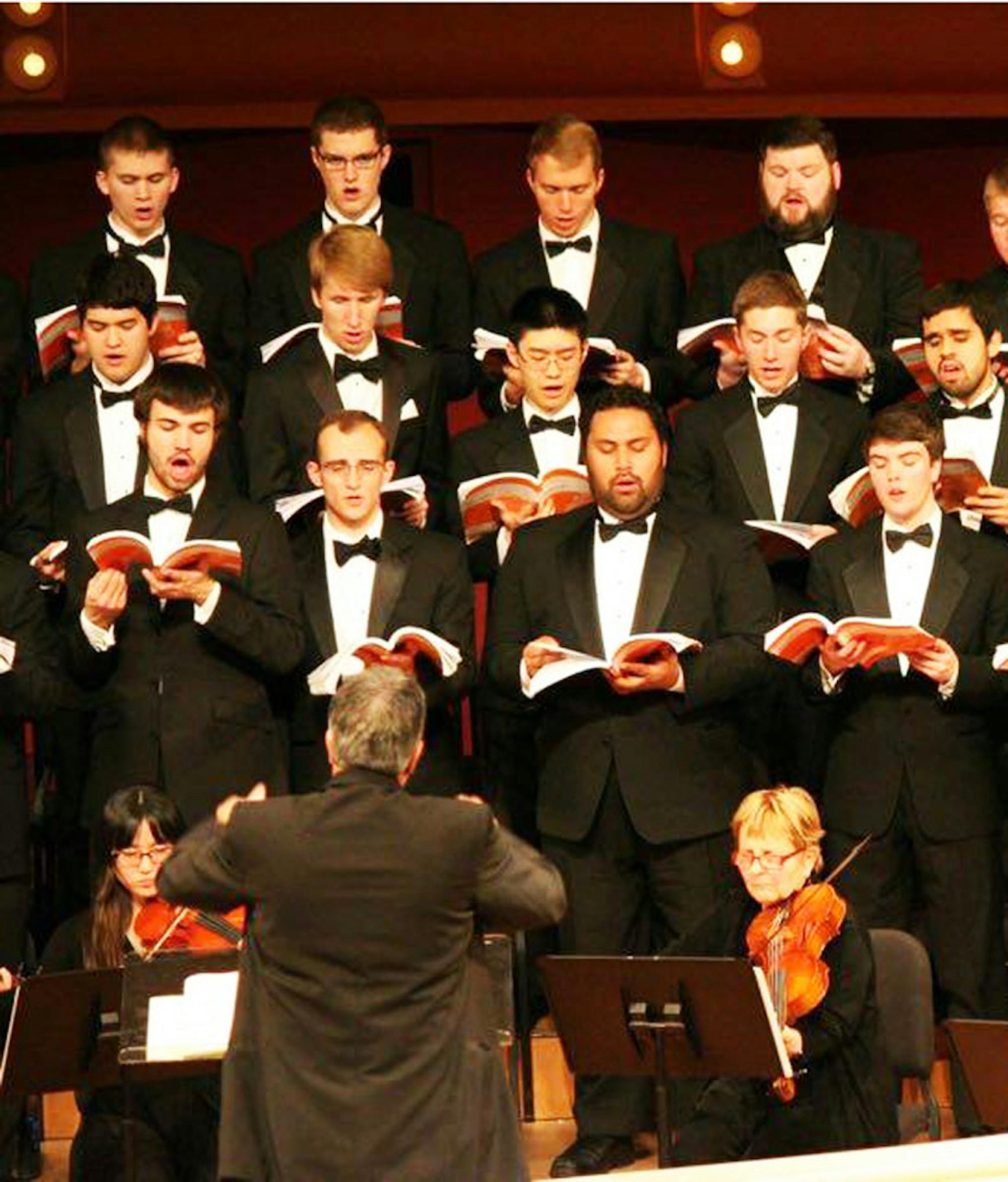The Notre Dame Chorale’s annual performance of Handel’s “Messiah” will take place at Leighton Hall in the DeBartolo Performing Arts Center on Friday and Saturday evenings at 8 p.m.
Tickets are $3 for students, $2 if they are bought from Chorale members.
“One of the reasons I decided to try out for Chorale is because I saw we were singing Handel’s ‘Messiah.’ And I just love the ‘Hallelujah Chorus,’ and I’ve really fallen in love with all of ‘Messiah,’” senior and chorale president Erin Bishop said.
“Messiah” is an oratorio that contains three movements, Bishop said. The Chorale will be singing most of the first two movements, for a performance that will be around two and a half hours.
“It depends on how many solos we do,” she said. “We don’t do the entire piece, we kind of pick and choose.”
This year’s performance is unique in that the Chorale will be accompanied by a Baroque orchestra, Bishop said. The orchestra is comprised of Notre Dame students and other musicians.
“A lot of the people play with us for ‘Messiah‘ every year,” she said. “The string instruments have a different feel. We still sing with a harpsichord, but it’s really cool because it’s more historically accurate.”
Director Alexander Blachly said in an email the Baroque instruments have a several advantages as accompaniment for works like "Messiah."
"Most notably, they make the phrases easier to play and easier to shape. Modern strings don't let in enough lightness and air, and as a result the phrases tend to sound heavy and labored, even when played softly," he said. "Certain effects, like sudden strong notes, also project better with Baroque instruments. The older instruments are not as loud as modern ones, and this has one advantage and one disadvantage: the advantage is that the sound is gentler, more voice-like."
The downside is that the Baroque instruments do not project as easily in a large hall, Blachly said, "and the players therefore have to take that into account and play with a little more projection than would be necessary on modern instruments."
"Perhaps the greatest advantage is that the Baroque instruments are pitched a half-step lower than modern instruments, with the result that the highest notes for the sopranos are easier to sing," he said.
'Messiah' is intended to retell the history of early Christianity, Blachly said, from the prophecies of Jesus' birth, through the host of angels singing of his glory to the shepherds, then his Passion and suffering, and finally, the arrival of Christianity, with the anticipation of the Day of Judgment.
"The Chorale sings virtually all of part one, the prophecies and birth, most of part two, Jesus' Passion, and several numbers from part three, which looks forward to a future day in heaven when the souls will be united with Christ," he said. "The Chorale ends its performance with the final number of part two, the 'Hallelujah' chorus, which, with its trumpets, foretells the Day of Judgment."
Bishop said the piece is performed a lot at Easter time, as well, because parts of the second and third movements deal with the death of Jesus.
“Because we sing it every year, we normally learn it pretty fast,” she said. “The old members help carry the new members. … and it generally requires some outside time, especially for the new people.”
Bishop said Chorale has a large number of new members this year.
“It was really exciting to see them on Monday for the first time, get to hear us perform our choruses with the orchestra, and seeing it all start to come together,” she said. “This is my favorite thing we perform. I love it, I smile through the whole thing. I’m not normally a huge classical music person, but Handel’s ‘Messiah’ is something else.”
Bishop said it has been “extra special” to sing ‘Messiah’ for the last time, especially as president of a group she loves.
“I’ll probably tear up during my last ‘Hallelujah’ chorus,” Bishop said. “It’s a special group, full of my best friends. ... We’re a really different group of people that are all brought together by our love of music, and I think that brings a lot of unique aspects to our group. … It’s one of those places where I always feel so comfortable, and welcomed and loved.”
In addition to performing Handel’s “Messiah,” the official concert choir of the University has fall and spring concerts, Bishop said. On the last week of winter break, Chorale will tour the Midwest.
“We’ll sing the ‘Hallelujah’ chorus at all our stops. I wish we got to sing more, but it’s not quite the same with just the piano. It’s when you add in the orchestra is when it really becomes something else.”













